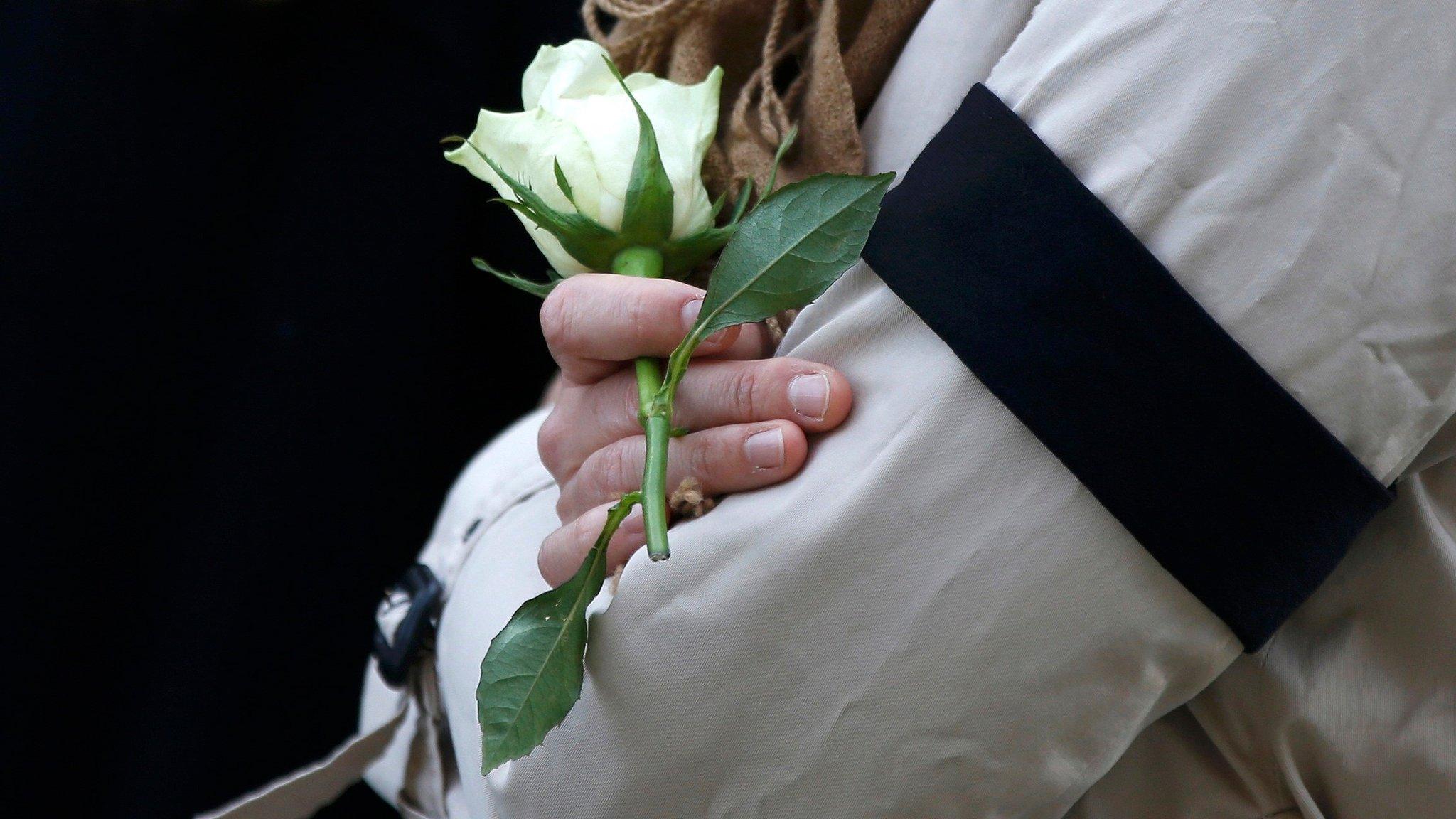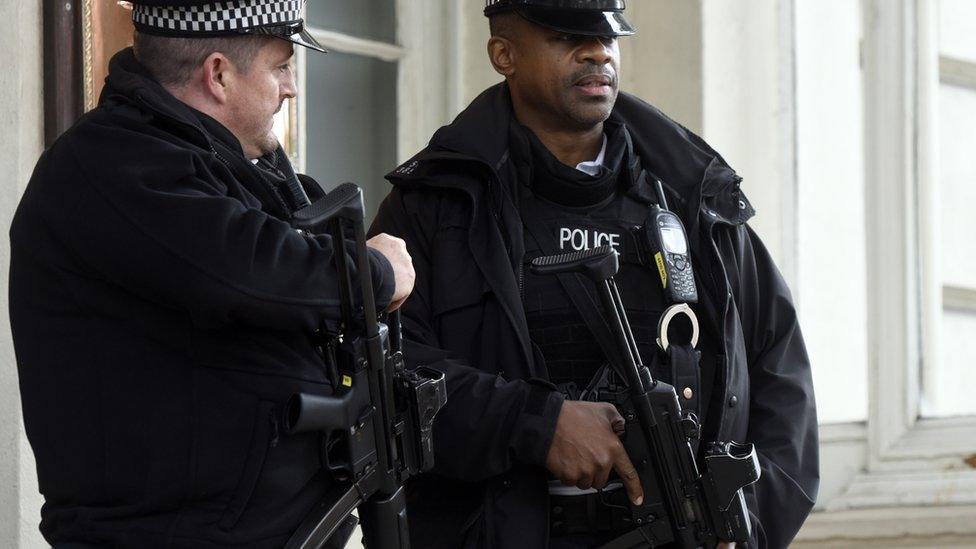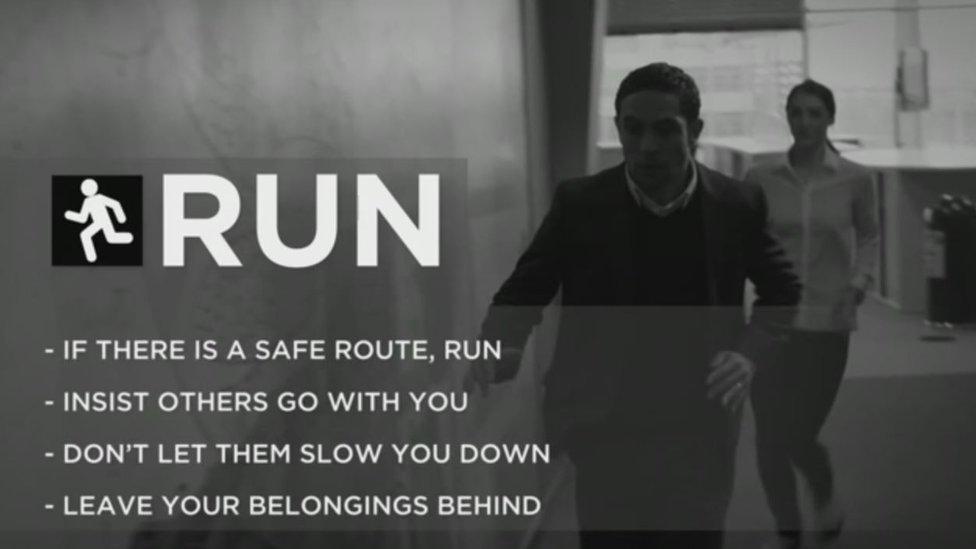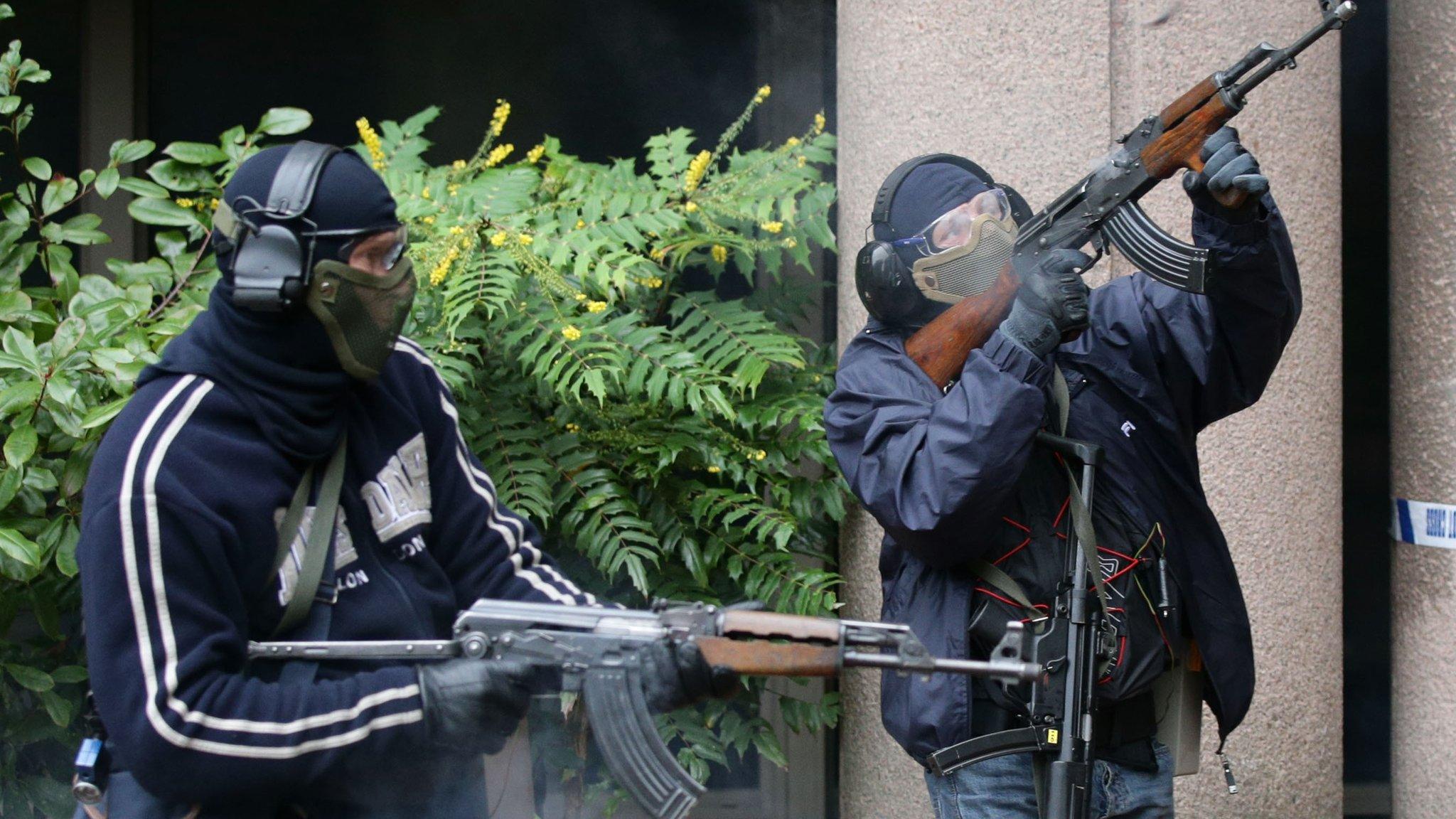Review of police gun use ordered by David Cameron
- Published
Angela Eagle MP: "We can't just have shoot-to-kill without any democratic involvement"
The prime minister has ordered a review of the use of guns by police in England and Wales following the Paris attacks, the BBC understands.
The review will examine whether the law gives enough support to officers making a "split-second" decision to shoot.
It follows concerns from senior police that firearms officers do not have the necessary legal or political backing to work with confidence.
Labour has warned of possible damage to community relations with the police.
Gunmen and suicide bombers killed 130 people in Paris when they attacked a concert hall, a major stadium, restaurants and bars almost simultaneously on 13 November.
BBC political correspondent Chris Mason says the atrocity has provoked deep soul-searching within government and among the police, raising the question of how the UK would cope if something similar were to happen here.
'Reasonable force'
Metropolitan Police Commissioner Bernard Hogan-Howe is understood to have raised concerns with David Cameron about the legal position of armed officers.
The issue was also discussed at a National Security Council meeting on counter-terrorism last week.
Currently, the Criminal Law Act 1967, external allows police to use "reasonable force", while the Criminal Justice Act 2008, external recognises the defence that an officer had an "honest and instinctive" belief that opening fire was reasonable.
The internal review - to be carried out by the Home Office, the Attorney General's office and the Ministry of Justice - is expected to examine whether those laws go far enough to protect armed officers and prevent them hesitating in the event of an attack.
Of the 130,000 officers in England and Wales, around 6,000 are trained to use guns, but the government has announced plans to significantly increase that number.
A firearms officer was arrested last week over the fatal shooting of Jermaine Baker, 28, in Wood Green, north London. The Independent Police Complaints Commission is also investigating the incident.
'Absurd'
There have been warnings that fears of lengthy investigations, public inquiries and even prosecutions following a shooting could deter police officers from taking up firearms roles.
Former Met Police commissioner Lord Blair told Sky News the "investigative and judicial processes" needed to change, rather than the law.
"When somebody is shot dead, of course the police have to account for what has happened, but some of these cases take five, seven, 10 years to resolve. That's completely absurd."
He added: "These are men and women who go to work to do an incredibly dangerous job for which they volunteer and if they do their duty and shoot somebody because they have to... they should not be treated as criminals."

When can the police use force?
Officers must consider whether the use of "reasonable force" has a lawful objective and basis. Their options include:
self-defence - common law (legal precedents set by courts and judges)
defence of another person - common law
preventing damage to property - Criminal Damage Act 1971
preventing a crime, by making an arrest or apprehension - Criminal Law Act 1967
An officer must also determine how immediate and grave a threat is, and whether any action short of using force could be deployed instead.
The Criminal Justice and Immigration Act 2008 says that what amounts to reasonable force should be considered in light of the circumstances a police officer is faced with - and what they honestly and instinctively believed they were faced with - at the time.

A government source said: "We must make sure that when police take the ultimate decision to protect the safety of the public they do so with the full support of the law and the state - there can be no room for hesitation when lives are at risk."
But Jeremy Corbyn told the Sunday Times, external: "There has to be a very robust and strong independent inquiry into what the police do. Like any other public organisation, they must be held to account. I hope this is not a political stunt."
Following Paris, Mr Corbyn told the BBC he was "not happy" with police operating a shoot-to-kill policy, but later backtracked, insisting he supported any "strictly necessary force".
His shadow business secretary, Angela Eagle, told the BBC there must be "safeguards" to prevent wrongful shootings, but added: "We also need to give our armed police the confidence if they are dealing with a marauding terrorist... they can get that person down and get them on the ground and save life."
Lib Dem leader Tim Farron said, external police officers "must feel protected", but the law must be reviewed "in a calm and collected manner and not in a knee-jerk response to terror attacks".
The Met Police are also planning to increase the number of officers able to use Tasers.
The prime minister is thought to be in favour of the move in light of the response to the recent stabbings at Leytonstone Underground station, in which a Taser was used.
- Published16 November 2015

- Published17 November 2015

- Published18 December 2015

- Published2 December 2015
